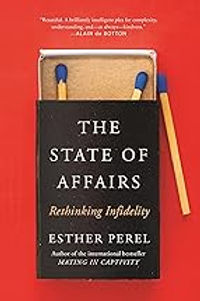
What is an addiction?
In general addictions are substance based, or behaviour based and often a combination of the two. For example addiction to alcohol or nicotine is considered a substance addiction because the persons body becomes reliant on the substance, and usually needs ever increasing amounts of the substance in order to maintain normal function, even more to achieve the altered state (such as being high or drunk).
A behavioural addiction is when a particular activity (such as sex or gambling) produces a release of neurochemicals (dopamine) into the reward center of the brain (nucleus acumbens) which creates a feeling of pleasure, satisfaction, excitement and/or wellbeing. This dopamine release is actually what the person becomes addicted to, and the behaviour is their route to access that dopimanergic release. As with a substance addiction, the person will need higher and higher levels of dopamine release to maintain normal functioning, and even more to get the 'feel good' response they are after. Therefore the behaviours engaged in need to become more and more frequent, and often more risky.
How do i know if I am addicted?
Addiction is diagnosed by a mental health professional or a medical professional when certain groups of symptoms are present. These symptoms include:
-
Impaired Control- needing more and more of a substance or behaviour than wanted or intended. And/or wanting to cut down or stop the substance or bahaviour but not being able to. This can involve frequent failed attempts or resolutions to quite or cut down, or feeling helpless to even imagine a life without the substance or behaviour.
-
Social problems- Becoming less interested or less able to participate in social, relational or work environments. This produces negative effects on your relationships, income, or career.
-
Risky behaviours- Causing increased risk or harm to yourself or others. Such as sinking more and more money into an addiction, or using porn in risky situations, or engaging in impuslive sex that makes you vulnerable to disease or abuse.
-
Physical Dependance- Your body becomes reliant on the substance or behaviour for normal functioning. Stopping or cutting down will result in withdrawal sypmtoms and mood disturbances. When physical dependance sets in you require regular doses of the substance/behaviour in order to feel 'normal', therefore to get the 'high' effect you will need higher or more frequent doses/behaviours.
Levels of Addiction
When someone is assessed for an addiction the risk/level is categorised . These levels include:
-
At risk- The behaviours and symptoms indicate that the person is likely to devlop an addiction if no action or intervention is implemented.
-
Mild- The persons symptoms indicate that an addiction and the side effects are forming and starting to cause harm to the person.
-
Moderate- The symptoms and behaviours of the addiction are having a significant impact on the persons life and wellbeing.
-
Severe- Most of the symptoms are present and the substance or behaviour has become more powerful in the persons life than their ability to exert personal control over it.


Sex Addictions, Hypersexuality and Compulsive Sexual Behaviours
Sex and Pornography addictions can include:
-
Obsessive Thoughts- excessive, compulsive and intrusive thoughts about sex and sexual fantasies that interfere with your ability to concentrate or relate platonically with people.
-
Excessive Masturbation- Excessive masturbation that can cause physical harm (injuring yourself from overstimulation), cause harm to your career (masturbating at work or interfering with your ability to work), safety (masturbating in public or inappropriate situations) and relationship (excessive masturbation can lessen your desire OR ability to have sex with a 'real' person.
-
Excessive use of Pornography- Excessive, compulsive and inappropriate use of pornography that can cause social damage (being caught viewing porn at work or socially). This also leads to needing to viewing more frequent porn viewing, and more extreme content than you originally needed, or than you feel ethically comfortable with.
-
Pre-occupation- Spending excessive amounts of time planning and anticipating sexual encounters, causing difficulty in social and personal relationships and career outcomes.


-
Risky Sexual behaviours- Engaging in sexual behaviours that cause risk or harm to yourself. Such as unsafe sex (not using protection and/or contraception) with new sexual partners, meeting unknown/unsafe people for sex, having sex in unsafe environments.
-
Unethical sexual behaviours- In this context 'unethical' refers to your own values. When you have a sex addiction you may engage in sexual behaviours that go against your own values. This usually produces deep shame, and can lead to poor mental health and suicidal thoughts.
-
High frequency of Sexual Services- Spending more and more time and/or money on purchasing sexual services such as cam girls or phone sex, escorts, erotic massages, chat rooms, sex clubs and strip clubs and brothels.
-
Paraphilias- Paraphilias are sexual behaviours that cause harm to others. This could include sex without consent (rape, coercion, molestation, predatory behaviours), exploitation of others (filming/photographing people without consent, using sex workers who are trafficked or underage), sex with minors, and causing pain and injury to others during sex without their consent (non-consensual kink, fantasy, fetish, domination, masochism)
Love and Relationship Addiction.
Love Addiction
Love addiction is when you frequently and easily fall in love, sometimes with people you have never met. You may feel like your life is empty or has no meaning if you are not in love with someone. You may become obsessed with the person and idolise them despite their behaviours showing otherwise. You may also just as easily 'fall out of love' with someone when a new person catches your eye. Love addicts need either to be on love, or to be loved by another (romantically and/or sexually) in order to maintain a sense of self and to feel that they have value.


Relationship Addiction
Relationship addiction differs from love addiction in that your primary focus is obtaining and maintaining a relationship regardless of wether you are loved or not. You may feel the need to be partnered in order have personal value or meaning in your life. You may feel the need to have multiple relationships in order to feel that you have value. Once the 'honeymoon' phase is over you may quickly loose interest in the relationship and seek another one- alternatively you may hold onto toxic relationships or do things that are dangerous or against your own values to maintain a relationship even though it is hurting you.
Common Symptoms of Love and Relationship Addiction
-
Dependency-Needing to be in a romantic or sexual relationship in order to feel that you have value, meaning or purpose.
-
Clouded Judgement- Prioritizing a new love interest over your family and close friends. Making risky financial investments to please or gain attention/retain attachemnts to a new relationship. Moving or making impulsive life changes for the purposes of a new love interest or new relationship.
-
Frequent overlapping relationships or rebounding relationships
-
Frequent affairs, both emotional romantic and sexual
-
Frequent inappropriate or unethical relationships (such as people you have power or control over EG students, subordinates, patients, family members such as your partners siblings or family members) or frequently fall in in love people who have authority over you ( for example your teachers, your doctor, your boss)
-
Obsessive Thoughts- Intrusive obsessive and/or unwanted overthinking about the person you are in love with.
-
Excessive Attachments- Easily fall in love and form an emotional connection with people and feeling uneasy if you do not have a love interest.
-
Pre-occupation- Spending excessive amounts of time planning and anticipating social or romantic encounters.
-
Risky behaviours- Engaging in personal or sexual behaviours that cause risk or harm to yourself in order to gain the love or attention or approval of the person you desire. Staying in toxic and abusive relationships because you feel that you need to be loved by them.
-
Unethical behaviours- Engaging in behaviours that are illegal (such as stalking). Engaging in behaviours that are unethical or go against your own personal values (such as using your social, political, or workplace roles to maniplulate situations in order to gain information or attention of the desired person.
Affairs and Cheating
Betrayal Trauma
What is Betrayal Trauma
Betrayal trauma is a psychological reaction to a person or institution that you depend on for your sense of safety (social, physical, financial, political) who violates your trust or wellbeing.
In relationships this can occur with family abuse, domestic violence, and sexual abuse. It also occurs when addictions take hold, and your partner or parent behaves in deceptive ways that can cause financial instability, physical harm and lack of ability to trust you.
Sex addiction, porn addiction and affairs often result in betrayal trauma for the partner. Apart from breaking trust by cheating, Sex addicts frequently put their partners sexual health at risk through engaging in unprotected sex creating physical risks of STI's unbeknownst to the partner. Another shock to the partner is realising that they have been 'living a lie' and you can feel like you don't know what is real in your relationship anymore.

Should I stay or should I go?
If you have just discovered an affair, sex addiction or cheating- or you have just realised this is what YOU are doing- Now is not the time to make a decision about your long term relationship. Now is the time to seek professional help.
Ideally each of you will see your own therapist, and as a couple you can see a relationship therapist. Not everyone has the time and financial resources to do this. At the very least find a therapist YOU can see to get immediate support for your own thoughts and reactions. You don't have to leave, and you don't have to stay- you definitely don't have to make the decision right now.
For some couples an affair is a wake up call, a call to action that helps you to realise how much you actually love each other and motivation to clean up the emotional and intimate spaces that have been neglected or dysfunctional. To other couples its a wake up call to really see and accept the reality that "this isn't working" and we need to move on. And to others, it's the nail in the coffin, It's the last chapter of the love story. You need time and assistance to work through all of the confusion and make a decision about the path forward.

Symptoms of Betrayal Trauma
-
Dissociation- feeling disconnected from your life, your thoughts, and your family and friends
-
Flash backs- having vivid upsetting memories of moments that trouble you (for example texts you have seen, conversations you overheard)
-
Intrusive thoughts- not being able to concentrate on anything else but the betrayal the relationship and the lies.
-
De-realisation- Feeling like you are not connected to reality, you don't know what is real anymore, you feel a bit like you are a ghost floating through life unable to connect with others.
-
Attachment Confusion- wanting to push the betraying partner away to protect yourself and/or punish them, but also feeling a deep need assurance of your connection with them.
-
Hysterical Bonding- An increased desire for sexual connection with the offending partner, and sometimes even a renewed sense of love and commitment to each other which increases the confusion mentioned above
-
Shame- Feeling like your partners cheating is your fault, or reflects on your attractiveness, desirability or lovability.

Resources and Recommended Reading
As an Amazon Associate I earn from qualifying purchases






